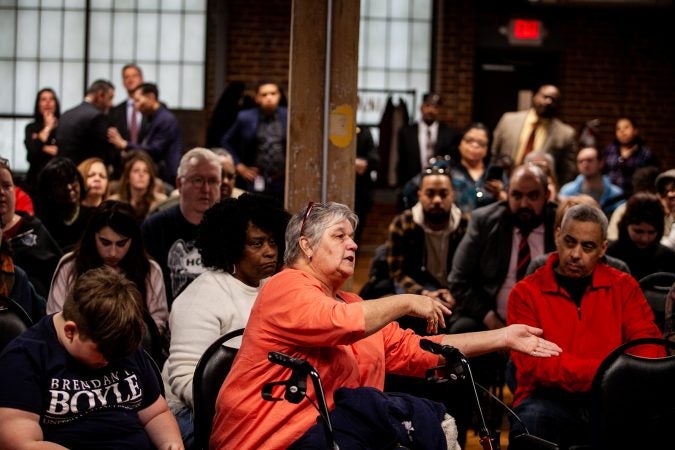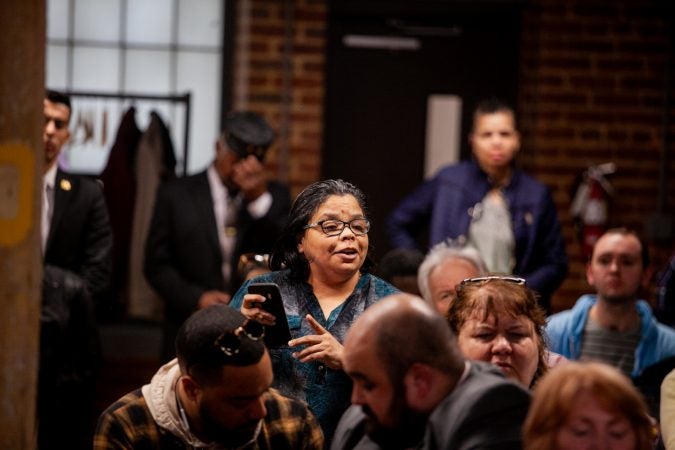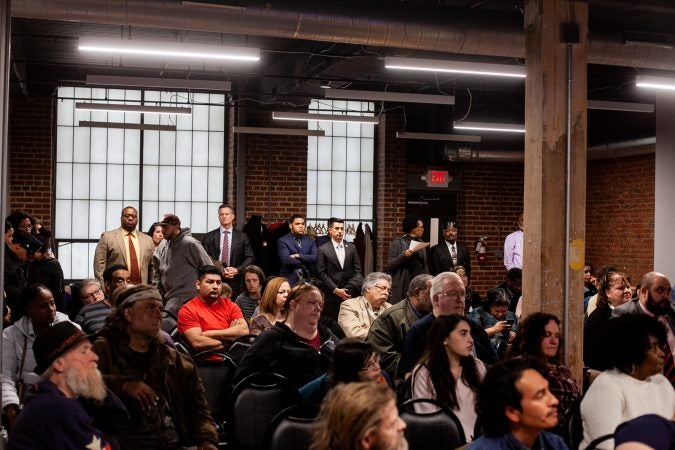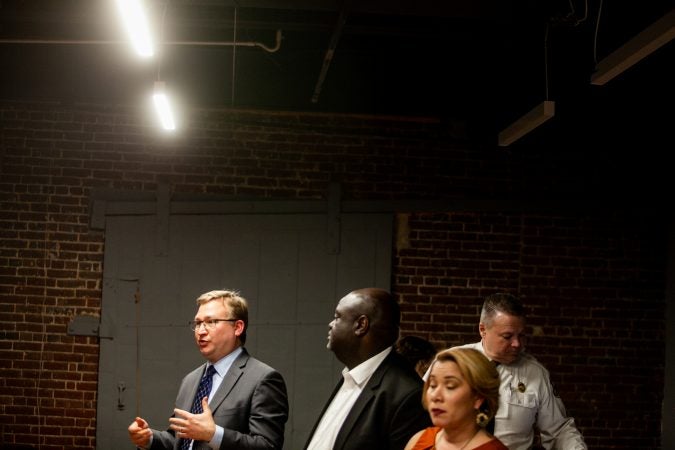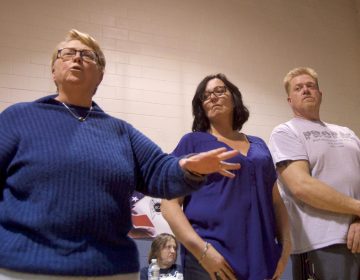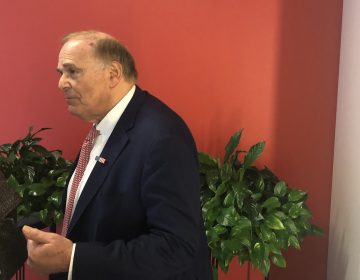Kensington neighbors angered by potential location of supervised injection site
Residents have been working with the city of Philadelphia for months, so they were surprised to learn about a potential site for an overdose-prevention facility.
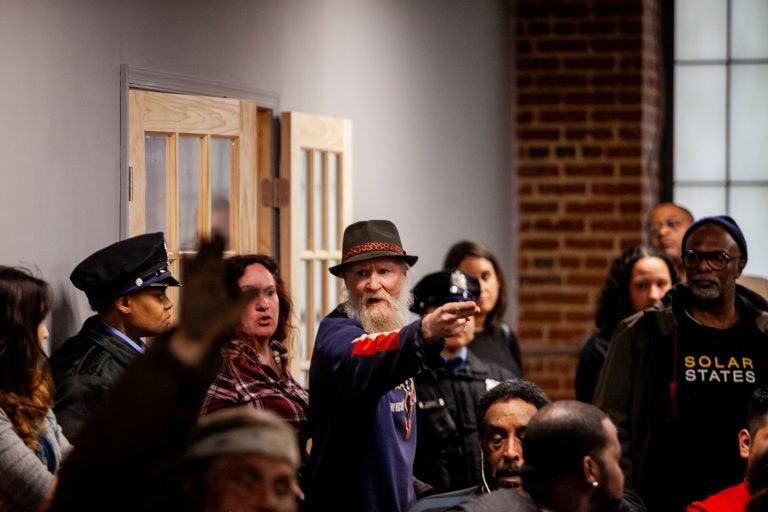
A man is angered by the discussion of a proposed safe injection site, yelling as he leaves a meeting Tuesday evening that provided updates on the Philadelphia Resilience Project's efforts to combat the oipiod crisis. (Brad Larrison for WHYY)
Philadelphia officials answered to Kensington residents at a community meeting just blocks from the proposed site for what would be the nation’s first supervised injection facility.
City Managing Director Brian Abernathy said he will not support the facility at the proposed location without more conversation.
Tuesday night’s meeting was supposed to be an update from representatives of the Philadelphia Resilience Project — a partnership between neighborhood leaders and the Managing Director’s Office to prevent crime and clean up the streets of Kensington. But the conversation turned to supervised injection facilities quickly in response to last week’s news that the nonprofit Safehouse, which plans to open the facility, is closing in on a location.
Last week, Safehouse backer and former Pennsylvania Gov. Ed Rendell announced at a conference in Washington, D.C. that a developer plans to donate use of a space near the Kensington and Allegheny El stop to the nonprofit for $1.
Though it has long been speculated that any such site would be in Kensington, the news came as a surprise to neighbors, who had been in consistent communication with the city and with Safehouse.
Abernathy said that although he and the Kenney administration support the opening of such a site, the location announcement was premature, in his view.
“All the work that we’re doing in this community, it depends on trust, and it depends on relationships. And I think by jumping out the way they did last week, it strained some relationships that they’re going to need to have in order to be successful,” he said of Safehouse.
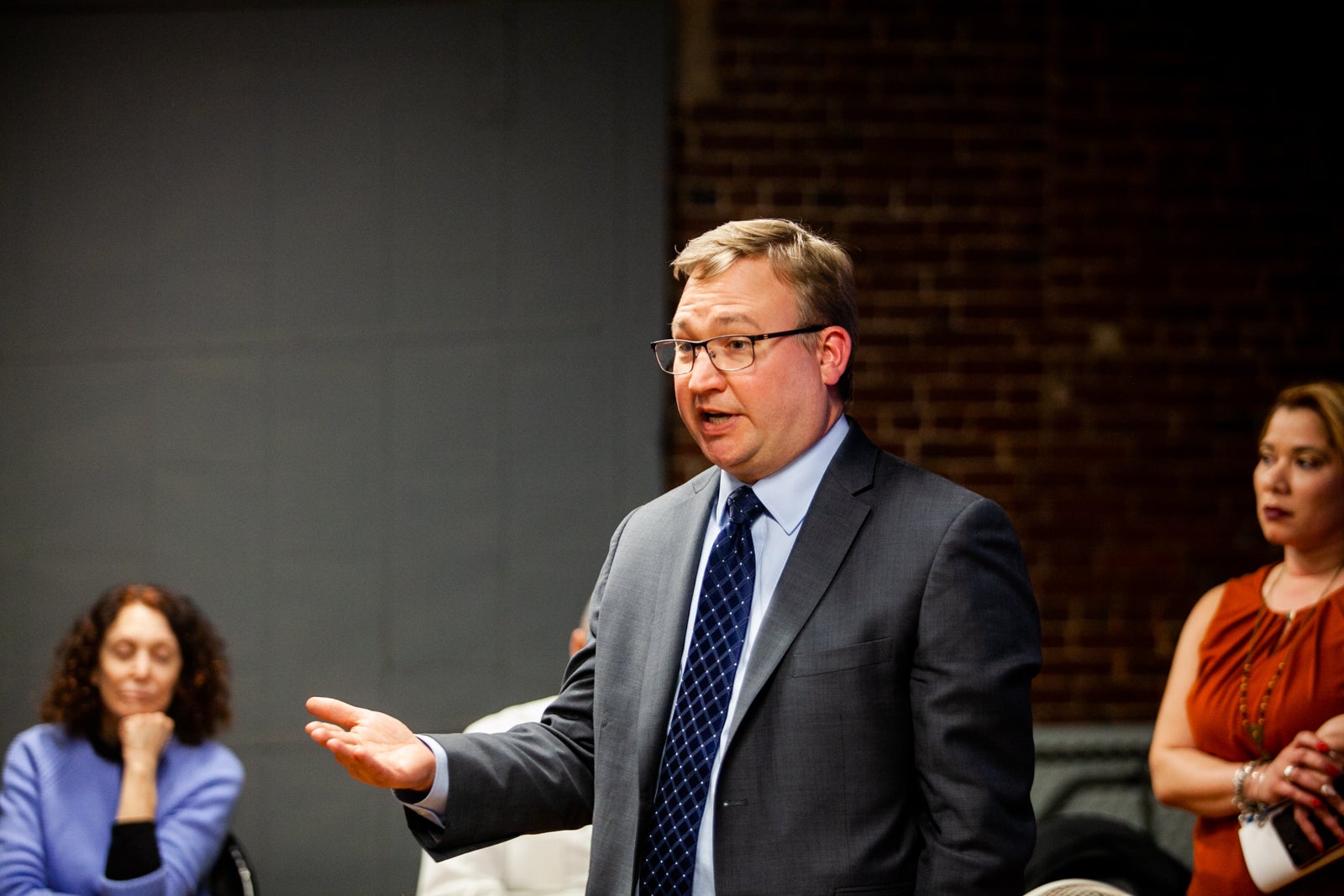
Neighbors expressed fear that a supervised injection facility would increase crime and keep drug dealers and drug use stuck in Kensington. Shannon Farrell is president of the Harrowgate Civic Association, a local community organization. She opposes the facility but has been working closely with the city and with Safehouse board members.
Farrell noted that she and those in favor of these sites can agree on a lot. She said Abernathy’s office listened when her group asked for help clearing out the encampments under neighborhood overpasses so residents could use the space. And it’s gone the other way, too, she said.
“We have done what they asked us to do — supported recovery, supported Narcan,” Farrell said of the overdose-reversal drug, naloxone. “I think that all of us want to save lives.”
But when it comes to this issue, Farrell said, she doesn’t see a scenario in which both sides can win: “Now we’re at that one point where we cannot support this because we would literally be choosing the lives of the drug users over our children. And that’s what we’re never going to get around.”
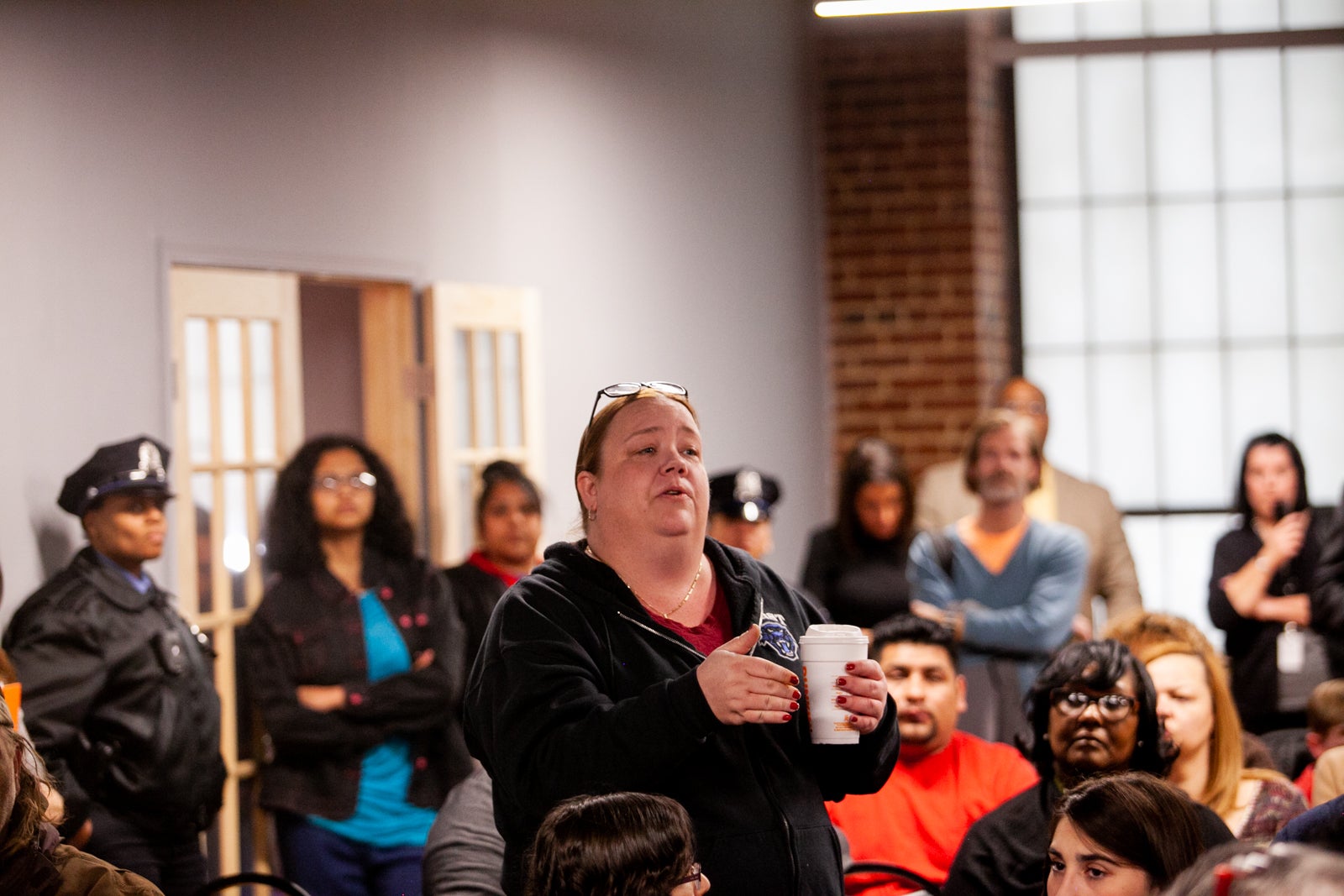
Farrell traveled to Toronto with Safehouse board members to see how a such a site works elsewhere. She came away concerned that things wouldn’t be the same here, because the Toronto site operated based on what she called a “containment” strategy — confining drug use to one area. To Farrell, that might work in an industrial or business district. But in residential Kensington, she feared the strategy would keep her family in close proximity to violence and crime in a way that doesn’t feel fair.
“You would contain us and condemn the area that we’re living in to that life and living in that crisis forever,” she said.
Despite her work with Safehouse, Farrell expressed doubt about the group’s trustworthiness based on the surprise location announcement.
Pennsylvania Attorney General Josh Shapiro was also at the meeting. He reiterated his position opposing supervised injection facilities and stressed that his office is focused on reducing the number of drug dealers in Kensington by placing undercover agents throughout the neighborhood. He said it was too far off to consider what his agents in the area would do if Safehouse opened.
“There’s a long way to before that, and I’m certainly not going to entertain that type of hypothetical,” he said.
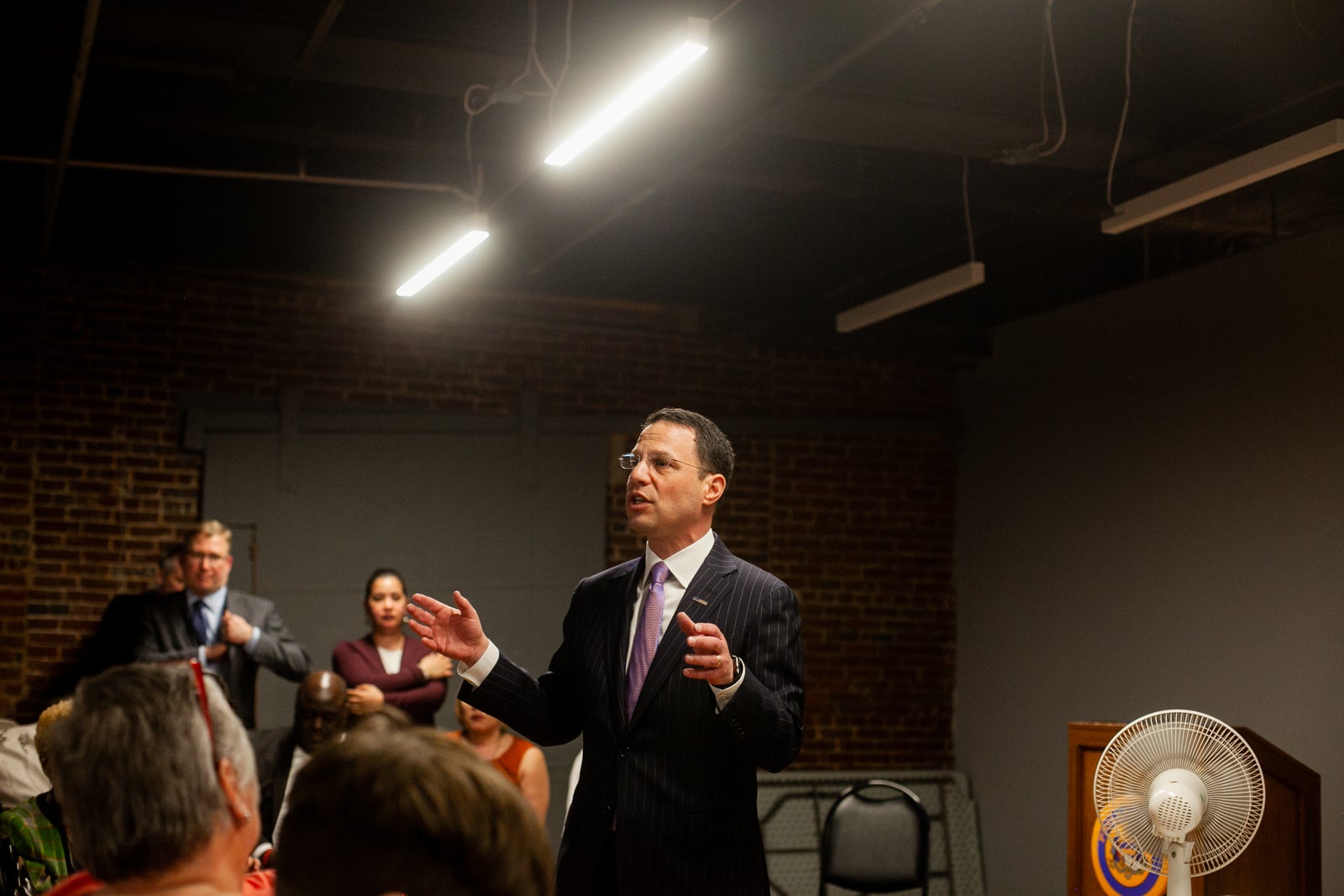
Shapiro said he thought the recent U.S. Attorney’s Office lawsuit against Safehouse was a responsible, civil approach to get answers to the legal questions at play.
The nonprofit has indicated it still plans to open this year.
WHYY is your source for fact-based, in-depth journalism and information. As a nonprofit organization, we rely on financial support from readers like you. Please give today.


